
Impact Update
Fourth Quarter 2022
Respecting Forests and Nature
Forests are an essential part of a larger, interconnected system. They safeguard biodiversity and protect our climate. They help sustain Indigenous communities around the world and provide valuable economic resources. Yet, society and businesses continue to destroy or convert forests at an alarming rate, creating substantial systemic threats. These threats are interconnected, but at Domini we know that the solutions are interconnected as well. Governments around the world can collaborate with experts, including Indigenous leaders, to learn the best approaches for nature-positive action. Investors can invest in companies that are working to end deforestation and protect biodiversity.
There’s no single solution, but there’s a clear path ahead. Just last month, the United Nations’ COP15 summit on biodiversity delivered a sweeping international agreement to protect earth’s forests, oceans, and other vital ecosystems. Collective, ambitious work can deliver real progress. That work is already underway.
In this edition
Engagement Overview
Domini meets with company executives on its own and in collaboration with other investors to encourage stronger policies and practices on the issues that matter to us. Aligned with our standards, we seek improved disclosure, more responsible practices, and address emerging issues with our companies. Through this constructive interaction – via letters, dialogues, shareholder proposals, and proxy votes – Domini communicates its expectations to companies and encourages innovation and business models that uphold respect for human rights while contributing to ecological sustainability and resilience.
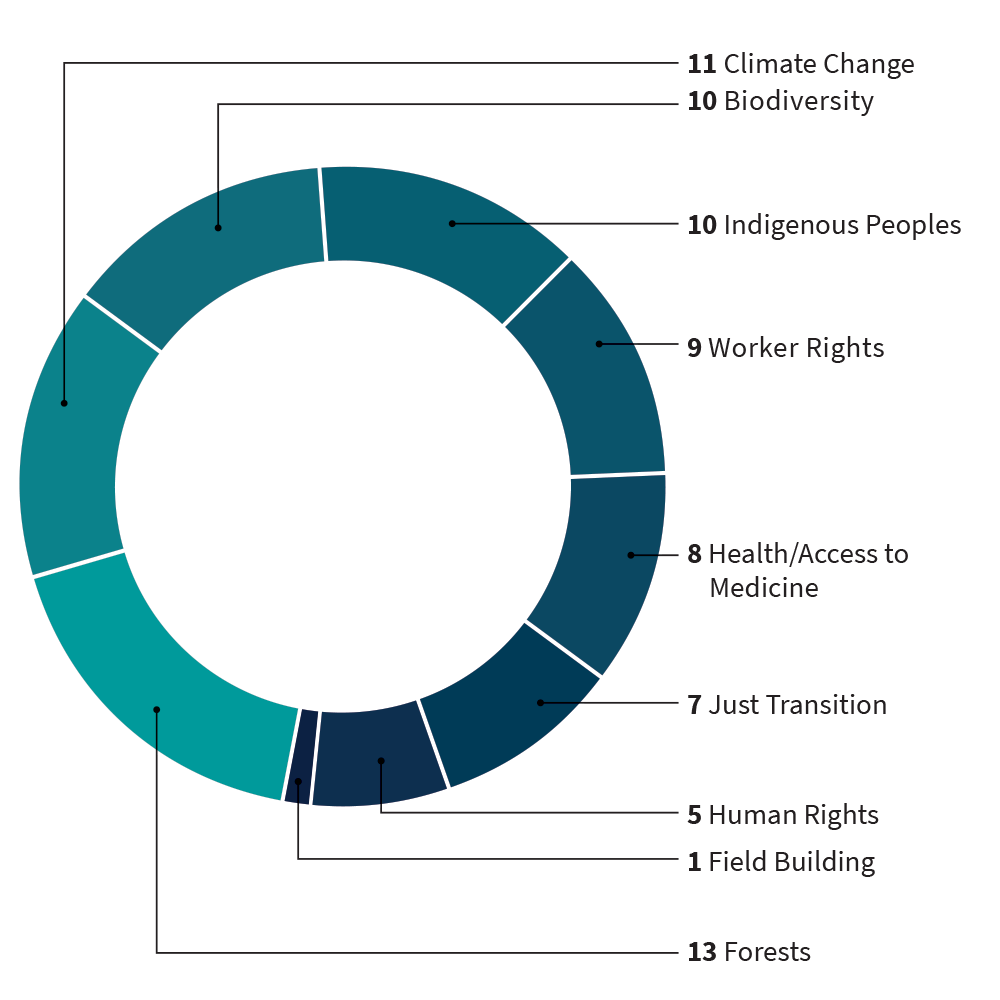
The UN Sustainable Goals (SDGs)
In the seven years since United Nations member states adopted the 2030 Agenda for Sustainable Development, the Sustainable Development Goals (SDGs) have been widely embraced by governments, civil society organizations, companies, and investors. The SDGs aim to address broad global topics such as poverty eradication, food security, protection of forests, sustainable cities and economic growth, gender equality, and climate change.
In each impact update, we’ll feature a few of our engagements alongside an investment highlight and show you which SDGs these are aligned with.
Changing the Way Palm Oil is Produced


The rich Leuser ecosystem in Sumatra, Indonesia is home to some of the world’s largest intact forests and vital habitats for endangered species including orangutans, rhinos, elephants and tigers.But while overall deforestation rates have been dropping, tropical forests in Indonesia are being cleared for palm oil plantations, whose output is sold to global companies. Much of this land has allegedly been taken from Indigenous and local communities who are the rightful owners. People who try to protect their land and resist displacement—known as environmental human rights defenders—are at the forefront of the movement to protect global biodiversity. They have called for accountability from the local suppliers that sell palm oil to global food and beverage companies. Global companies often have strong commitments around stopping deforestation and zero tolerance for land thefts.
We engaged with Unilever PLC, Mondelez, and PepsiCo to better understand how they implement their commitments to protect forests and communities. We will also encourage them to consider what more they could do to stop land grabs, end deforestation, and ensure respect for Indigenous and local communities. It is important that they respond to requests from advocates to make things fair and equitable—by returning land to communities or making payments to communities or making financial reparations, and by protecting environmental human rights defenders.
Respecting Indigenous Lands in the Arctic


The Arctic National Wildlife Refuge is home to Gwich’in Indigenous Peoples. Nine thousand Gwich’in people live along the migratory route of the Porcupine Caribou Herd—within the low boreal forest that spans the border between Alaska and Canada—and have depended on the animals for subsistence for thousands of years. Today, caribou are still vital for food, clothing, and tools, and are a source of cultural traditions for the Gwich’in. At the same time, oil reserves are found in this ecosystem. While oil exploration is currently on hold, many banks and companies—along with 17 global insurers—have committed to not be involved in oil exploration even if it resumes.
To support the rights of Gwich’in Indigenous Peoples, we are encouraging insurance companies Chubb and The Hartford Financial to meet with representatives of the Gwich’in Steering Committee and hear directly why their commitment is important for social justice, biodiversity, and climate change. We will continue to engage and make the case for better review of these human rights risks, including a commitment to Free Prior and Informed Consent (FPIC) of Indigenous Peoples, before underwriting a project.
Helping Make Agriculture More Sustainable

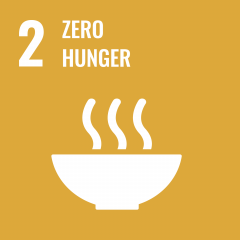
Deere & Co. helps its customers make their agricultural practices more sustainable—for example, by reducing the use of fertilizers and creating more eco-friendly equipment that reduce greenhouse gas emissions from farming. 92% of Deere equipment emissions, however, are associated with customers’ use of its tractors and other heavy-duty machinery, which are powered by fossil fuels.
Deere has set a 2030 target to reduce “Scope 3” emissions by 30%, but it hasn’t yet adopted a long-term net-zero target or issued a report on its business-wide transition strategy. This will likely involve significant research and investment to identify cleaner technologies that can power heavy farm equipment. Establishing a long-term climate strategy would help inform decision making and ensure consistent actions to reduce carbon emissions. We are engaging with Deere on this topic, and we’ll work with the company as it develops disclosure that has a long-term target and includes information on how different pieces of their strategy, including capital allocation plans and lobbying activities, align with climate transition plans.
Focusing on Worker Well-being


Dollar General has 18,000 stores throughout the U.S., which help provide access to affordable goods and services to rural and remote communities. Still, there are concerns that this low-cost model operates at the expense of its workforce. The U.S. Occupational Safety and Health Administration recently identified Dollar General as a severe violator, due to repeat and willful offenses that put workers’ safety at risk. OSHA noted that stores often have unsafe exits, fire hazards, and blocked aisles. Some stores have unfortunately been the site of violence and armed robberies, resulting in employee injury and death. In addition, 92% of employees earn less than $15 per hour.
We are engaging with Dollar General about worker well-being, health, and safety to better understand what is being done about these workplace hazards and what input workers have. We filed a shareholder proposal asking for an independent review of worker safety, which may be on the ballot for the 2023 shareholder meeting.
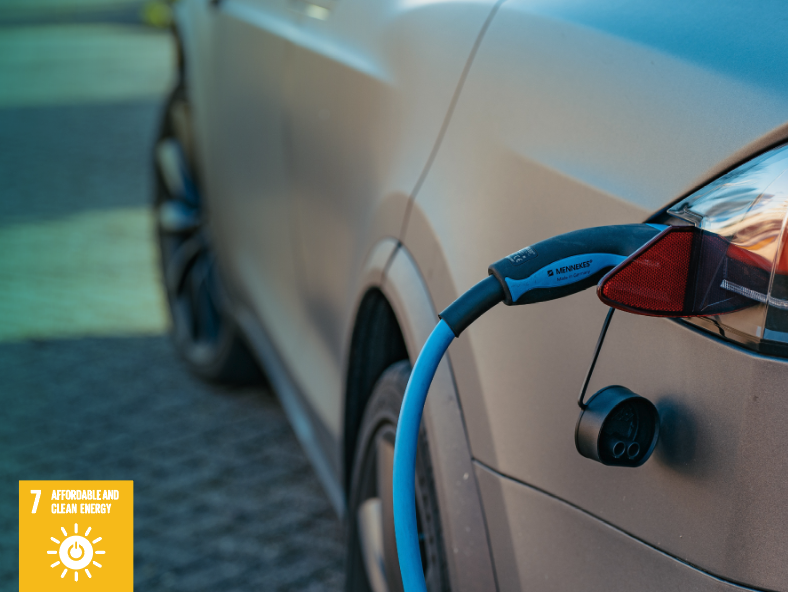
Bond Fund: Prioritizing Electrification and Environmental Justice
We invest in a General Motors green bond that is dedicated to advancing electric vehicle infrastructure, clean transportation technology, and charging infrastructure. Accelerating the pace of the transition away from internal combustion engines would further align GM with Domini’s Impact Investment Standards.
We recently joined a collaborative engagement with GM, coordinated by Ceres. The engagement encouraged GM to be ambitious in its electrification strategy and to further align the business with the 1.5 °C scenario. We raised issues of just transition and environmental justice, communicating that electrification can heighten certain human rights risks due to increased demand for raw materials like nickel, cobalt, and lithium. We stressed the importance of strong oversight and recommended greater accountability for suppliers to reduce human rights impacts and provide remedy if harm is caused. We also noted the establishment of the Inclusion Advisory Board to address racial justice—both internally and connected to the business externally—and how important it is to create an inclusive, respectful, and equitable workplace culture.
Domini Impact Bond Fund Theme Allocations2


Access to Housing
Supports affordable mortgage credit & rental properties, multifamily collateralized mortgage obligations, and other residential mortgage backed securities.

Corporate Debt3
Supports corporate general obligations & bank loans of companies that meet Domini’s Impact Investment Standards.

Economic & Community Development
Supports nonprofit education, rural & agricultural communities, creative economy & public interest, transportation, access to water, business & job creation, and community development financial institutions.

Low-Carbon Transition
Supports renewable energy, energy efficiency and green buildings, sustainable cities, sustainable forestry and conservation, and corporate green and sustainability bonds.

Non-Housing Asset-Backed Securities
Supports commercial mortgage-backed securities, auto loans, and other asset backed securities that meet Domini’s Impact Investment Standards.

Health, Well-Being & Aging Society
Supports nonprofit healthcare and research facilities, housing and healthcare services, and pensions.
2 Based on portfolio holdings as of 12/31/2022, excluding cash & cash equivalents, cash offsets, futures, swaps and options with the exception of short-term U.S. Agency bonds and Certificates of Deposit, which are reflected in this reporting. Numbers may not sum to totals due to rounding. The composition of the Fund’s portfolio is subject to change. Visit domini.com to view the most current list of the Fund’s holdings.
3 “Corporate Debt” includes general-obligation corporate bonds, bank loans, and corporate debt not classified under other themes.

Investment Highlight: Domini Impact Bond Fund
The Conservation Fund was established in 1985 and is dedicated to acquiring and protecting land, primarily forests, in the United States. Additionally, its solutions business helps developers meet regulations and offset construction impacts to endangered species, migratory birds, aquatic resources, cultural resources and more. The Conservation Fund also manages the Working Forest Fund, which aims to protect at-risk forests by purchasing working forests, allowing timber to be sustainably harvested and allowing certain recreation leases.
A Look Into Our Toolbox:
Forest Stewardship Council Certification

Forests are a focal point at Domini. They’re crucial to environmental and social systems, and they play an important role in combating climate change. Forest preservation ties in with our goals of universal human dignity and ecological sustainability, and our research process reflects that.
Most tropical deforestation is driven by just four commodities: palm oil, beef, soy, and wood products. We look closely at forest management practices in the supply chains of companies connected to these commodities because of the meaningful impact they have on forests.
Supply chains are complex and involve many steps, from farm to distribution to sale. They can be difficult to fully trace and verify, so that’s where certification schemes come in. Certifiers set detailed standards and then conduct audits, assessing companies’ management practices and supply chain operations. One particular certification that informs our research process is the Forest Stewardship Council’s (FSC) certifications. FSC’s focus on companies in forest-product-intensive industries and subindustries—including hospitality, real estate, household products and others—helps us understand which companies are making efforts to source wood and timber products sustainably and responsibly.
Domini News
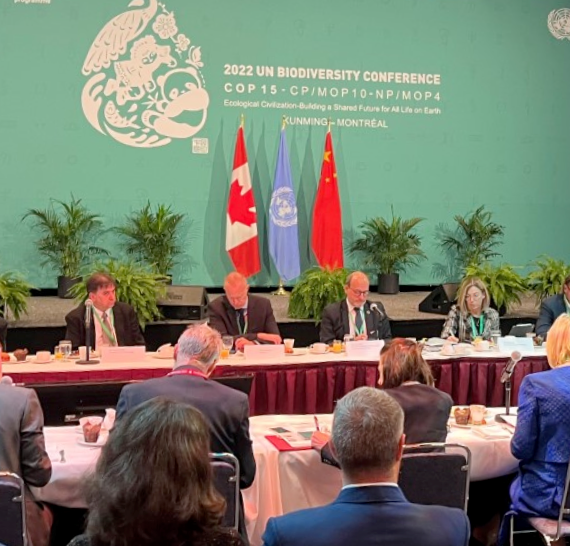
COP15: Global Progress on Biodiversity The United Nations’ COP15 summit on biodiversity delivered a sweeping international agreement, the Kunming-Montreal Global Biodiversity Framework, to protect 30 percent of the planet’s land and oceans by 2030 and to take other rapid measures against biodiversity loss. Our CEO, Carole Laible, and our Engagement Director, Mary Beth Gallagher, went to Montreal for the summit. They took part in key conversations, speaking on behalf of the Finance for Biodiversity Foundation and the newly launched Nature Action 100.

Why Investors (Should) Care About Forests We live in a world of complex, interconnected systems. Our CEO, Carole Laible, recently published an article about Domini’s efforts to make headway on system-level investing – through our Forest Project. Learn more about why forests matter and how investors can better recognize the value of forests in their portfolios at domini.com/forestsmatter
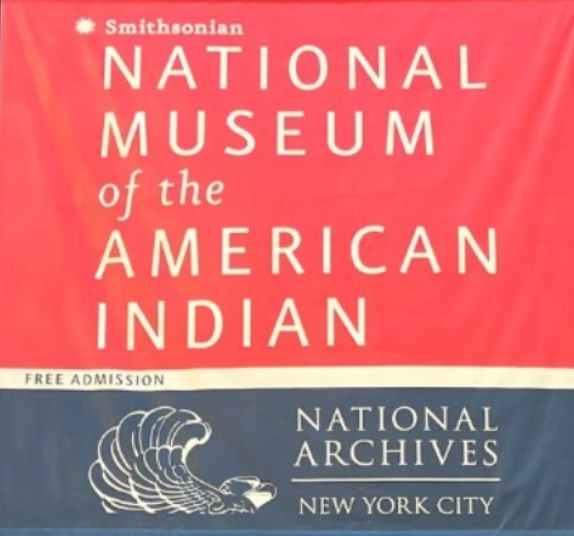
Native American Heritage Month November was Native American Heritage Month, an important time to celebrate the rich cultures and contributions of Native Americans and Alaskan Natives. Some members of the Domini team visited the National Museum of the American Indian near our office, exploring exhibits on the impact of COVID in Native American communities, the history of tribes across the U.S., and much more. Learn more at instagram.com/dominifunds

Does Your IRA Match Your Values? The deadline for 2022 retirement contributions is on April 18th. Now is a good time to invest in a sustainable future. With Domini, you can roll over almost any retirement account into an IRA backed by our strict environmental and social standards. Learn more about how you can help create a greater and greener world, one retirement contribution at a time at domini.com/ira
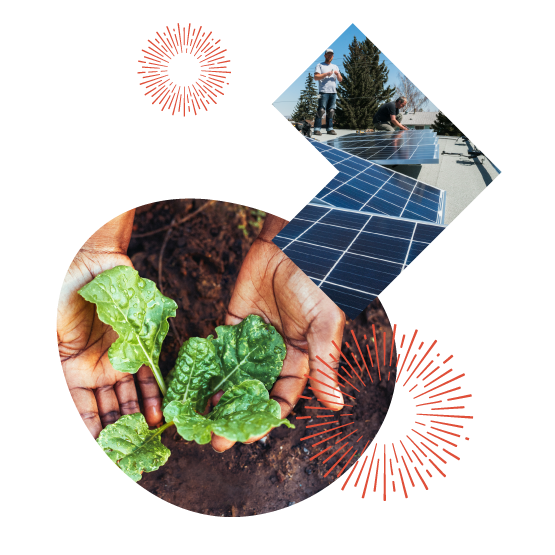
The secret to making an impact is small.
It starts by subscribing to news and updates.
